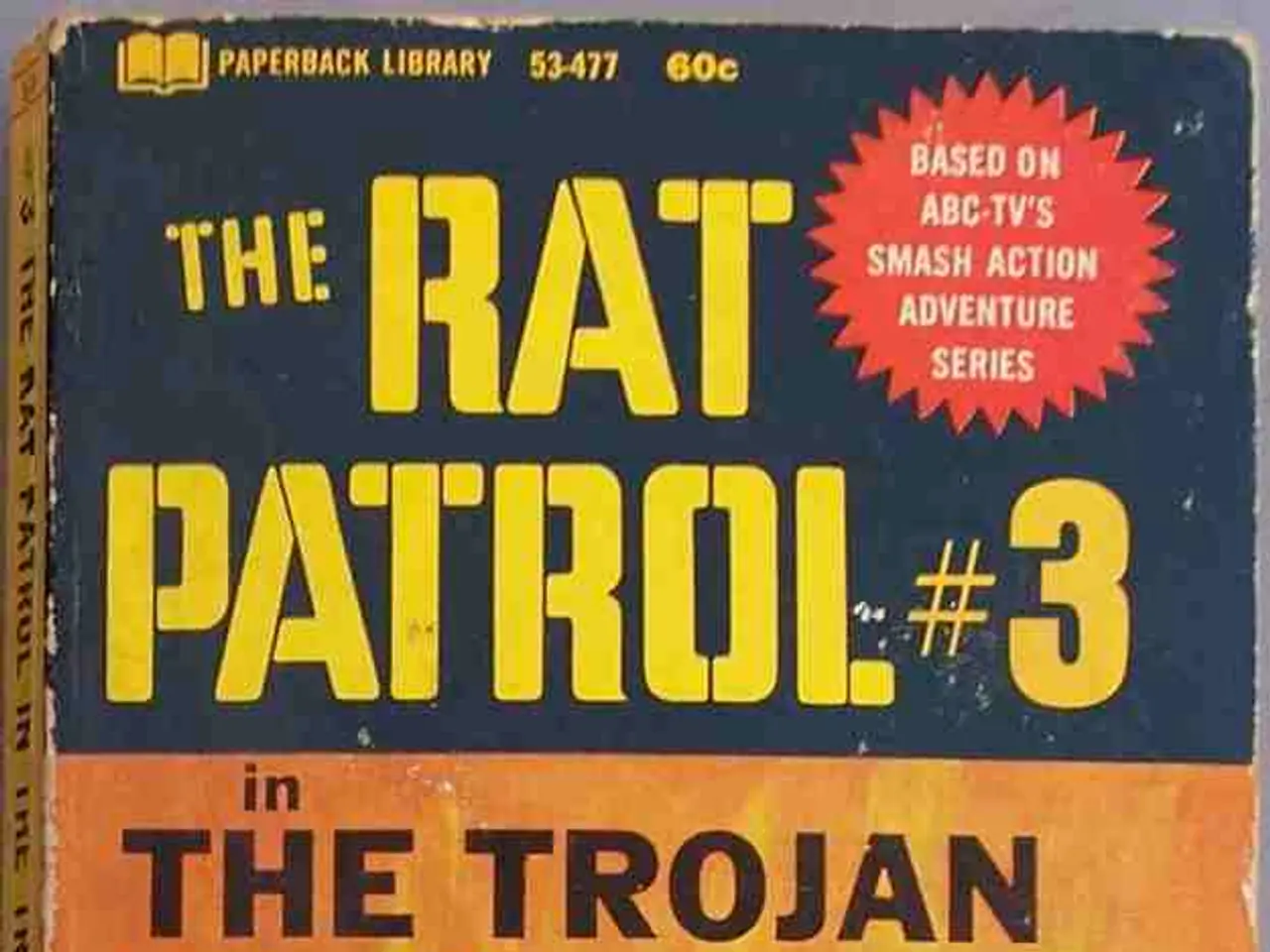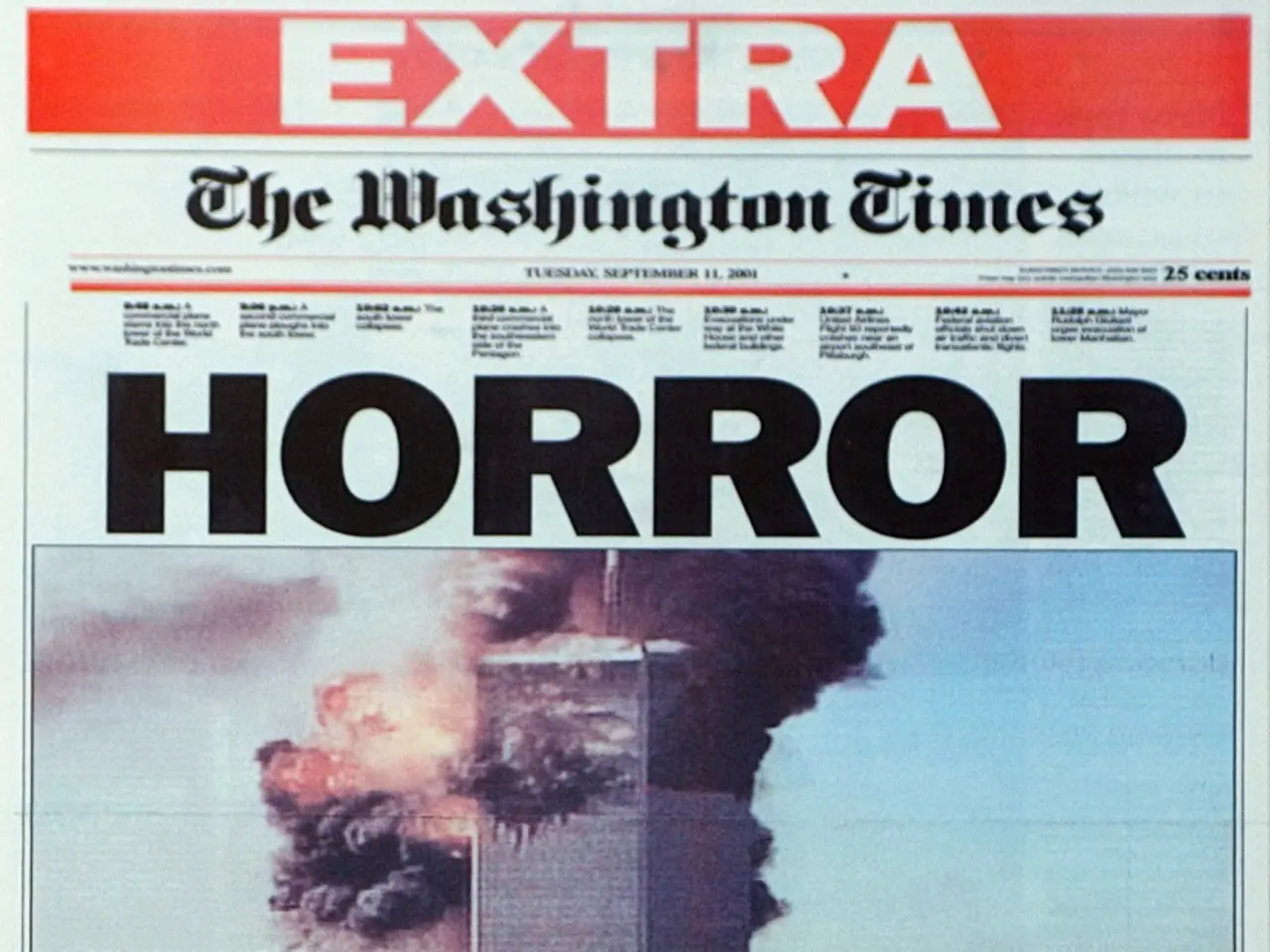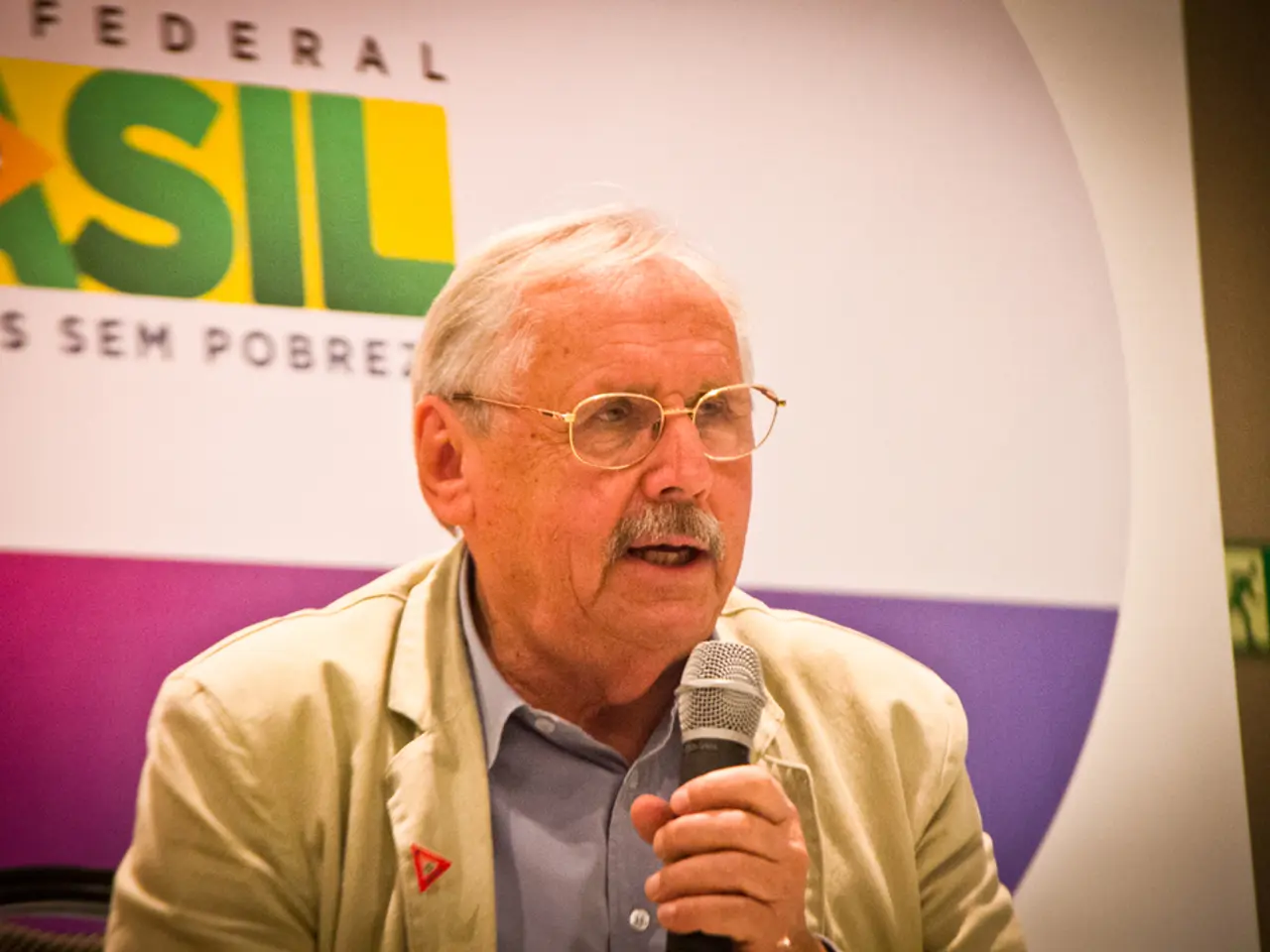Middle East Unrest: Iran's Unmet Call for Aid
International Community Leaves Iran in Crisis as Aid is Slow to Materialize
Last week, Israel took a bold move against Iran's nuclear program. While the world watches with bated breath, Germany's Chancellor Friedrich Merz seems to believe Israel is acting on behalf of Germany, yet the legality of this attack is up for debate. Nevertheless, it seems Israel's actions have temporarily halted Iran's path towards nuclear armament. Even though Iran's nuclear program is far from destroyed, the scientists responsible were eliminated last Friday. Tonight, Foreign Minister, Johann Wadephul, will be negotiating with his British, French, and Iranian counterparts in hopes of putting an end to this conflict.
Maybrit Illner is enthusiastic about discussing the ongoing Middle East crisis with her guests this evening.
Personal Accounts:
Sharzad Eden Osterer, a German-Iranian married to an Israeli, shares her emotional feelings about this turmoil. She reports on her family who are still residing in Iran. "I spoke to my mother a few minutes ago. They're okay, thankfully they managed to leave Tehran," she describes. Many are attempting to flee Iran, causing roads to be congested. The nation, classified as one of the world's richest oil countries, is currently plagued by a severe energy crisis, leading to scarce gasoline supplies.
The Iranian government has shown little concern for its own citizens' welfare, neglecting to construct necessary shelters and bunkers for Tehran's population. The city is now constantly bombarded by Israeli air force attacks, leaving the residents in fear for their lives. Osterer admits she's extremely worried, as the Iranian government has also been restricting internet access – a move that has proven fatal in the past, resulting in the death of over 1500 people. Despite the uncertainty, her husband's family appears to be relatively safe, albeit with a house in Israel being hit with no reported injuries. "I always say: Thank God I'm here, my children are safe. I can't imagine how people feel in both countries." Osterer is in contact with various individuals in Iran and is convinced that "almost everyone who has been on the streets in recent years knows who's responsible for this mess."
Historian's Perspective:
Michael Wolffsohn, historian and analyst, asserts that the war did not commence last year as commonly believed, but rather on October 7, 2023, with the attack by the terrorist organization Hamas on Israeli civilians. He surmises that Iran sent its proxies ahead, only to find that they have deserted them. Iran now awaits assistance that may never arrive. Wolffsohn believes that Israel was on the brink of destruction, and that any government should take responsibility for ensuring the safety of their state.
Moving Forward:
Israel's next moves remain uncertain. While some members of the Israeli government advocate for regime change in Iran, Wolffsohn suggests that portions of the Iranian populace may be prepared for it. In his view, Iran is a multi-ethnic state with various minorities that could potentially be supported clandestinely and militarily, promoting self-determination forces within Iran. However, Europe and Germany have consistently viewed Iran as a united entity rather than as a collection of diverse groupings.
Armin Laschet concurs that a change in the Iranian regime offers hope for a new Iranian society. Laschet insists that transition should be driven by the Iranians themselves, rather than by Israel or the United States. Kristin Helberg believes that the United States is currently hesitant to join the conflict, waiting for a moment to empower Israel to further damage Iran's nuclear program without direct intervention. She notes that Iran is also interested in negotiations and actively participating in high-level dialogue. However, a peaceful, face-saving solution remains elusive.
The Commission, in light of these geopolitical tensions, might consider submitting a proposal for a directive on the protection of workers from the risks related to exposure to ionizing radiation, considering the potential rise in nuclear facility activities amidst the war-and-conflicts in the Middle East. As the ongoing crisis in the region continues to dominate general-news, it's crucial for policymakers and analysts to address not only military and political dimensions but also the health and safety concerns that could stem from the escalating situation.







